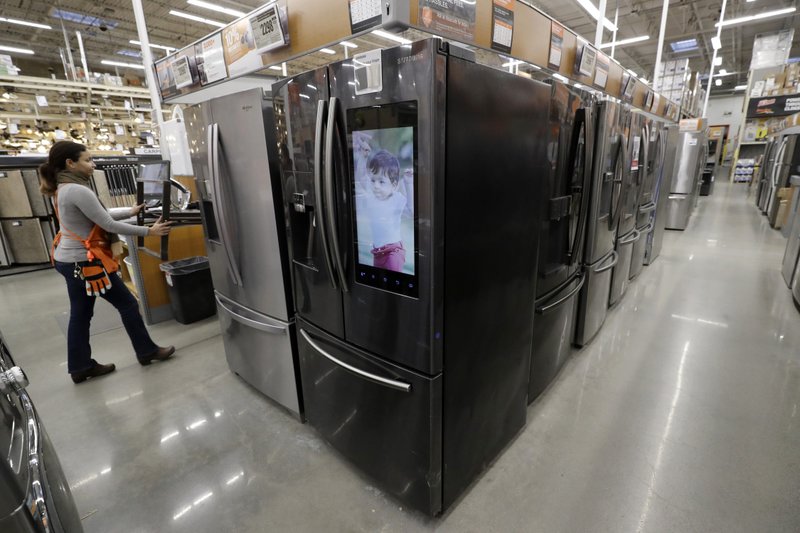WASHINGTON -- U.S. orders for big-ticket factory goods plunged for the second straight month in April as the coronavirus pandemic hammered the economy.
The Commerce Department said Thursday that orders for durable goods dropped 17.2% last month, the most since August 2014, after falling 16.6% in March. The median projection in a Bloomberg survey of economists called for a 19% decrease.
The durable-goods data showed broad declines in orders, including a 47.3% plunge in bookings for transportation equipment such as motor vehicles. Excluding orders for transportation equipment, which can be volatile from month to month, durable-goods orders fell 7.4%.
New orders for cars, trucks and auto parts shrank 52.8%.
[CORONAVIRUS: Click here for our complete coverage » arkansasonline.com/coronavirus]
A category that tracks business investment -- orders for nondefense capital goods excluding aircraft -- decreased 5.8% after falling 1.1% in March.
The Commerce Department's revised gross domestic product data showed business fixed investment dropped at a 7.9% annualized rate. Equipment spending plummeted at a 16.7% pace.
The lockdowns, travel restrictions and social-distancing measures meant to contain covid-19 have brought economic activity to a near standstill across the United States.
Factories in the past two months bore the brunt of the sharp cutback in demand amid the nationwide lockdown. While states have begun letting businesses reopen, manufacturing will be slow to recover as fewer people shop and businesses rein in capital spending projects.
Still, last month's decline in durable-goods orders was slightly less than economists had expected.
Gregory Daco, chief U.S. economist at Oxford Economics, said the durable-goods report is another sign that the economy will struggle to bounce back.
Corporate profits slumped an annualized 13.9% in the first quarter, according to the gross domestic product report, indicating companies may continue to pull back on capital spending projects until earnings improve.
The report signals the end of the longest U.S. economic expansion and the start of what's likely to be the deepest recession in at least eight decades.
"Overall, depressed global and domestic demand, broken supply chains, low oil prices, tighter financial conditions, elevated uncertainty and lingering virus fear will prevent a V-shaped recovery" in the second half, Daco wrote in a research note. "Still, we anticipate a partial resumption of activity going into [the third quarter] as factories slowly resume operations.
Separately Thursday, the Commerce Department reported that the economy shrank at a 5% annual pace in the January-March period, worse than initially reported. And the Labor Department reported that initial jobless claims for regular state programs totaled 2.12 million in the week that ended Saturday, while benefit rolls declined for the first time during the pandemic.
Information for this article was contributed by Paul Wiseman of The Associated Press and by Elizabeth Dexheimer of Bloomberg News.
Business on 05/29/2020
